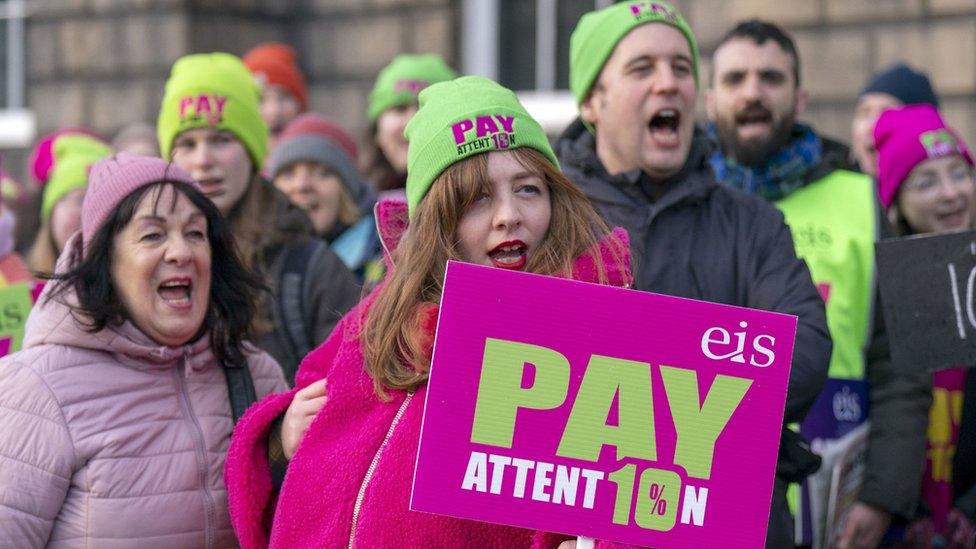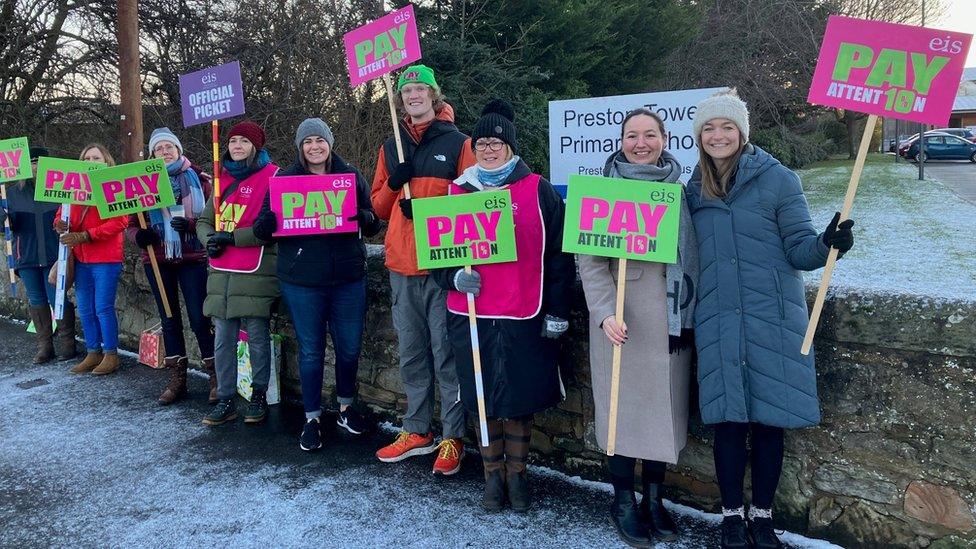New pay offer expected in Scottish teacher strikes
- Published

EIS members calling for a 10% pay rise
A new pay offer to try to resolve Scotland's teacher strikes is expected to be made next week.
Scotland's biggest teaching union, the EIS, said any new offer would need to be significantly improved before the action is called off.
Unions want a 10% rise but the current deal is worth between 5% and 6.85% for most staff.
Teachers have held a number of strikes across Scotland since November and more dates are planned for later this month.
Council leaders expect to hear on Monday whether the Scottish government will give them money to increase the existing pay offer.
If this happens, they will hold a meeting later in the week to agree a new deal before it is presented to unions.
The pay dispute centres on the pay rise which teachers were due to receive in April last year.
Any offer has to be affordable to all 32 of Scotland's councils.

Teachers are next due to strike on 28 February and 1 March
Their hope would be that the new offer would lead to a suspension of strike action while a two year pay deal - which would also cover the 2023 pay offer - was negotiated.
The most recent pay offer was made before the first strike by the EIS in November last year. Since then the EIS and other unions have staged a series of walk-outs.
Nearly all pupils in Scotland have lost three or four days' worth of education.
The next national strike is due on 28 February and 1 March.
The EIS is also planning targeted strikes at schools in a number of areas - including the Glasgow constituency of First Minister Nicola Sturgeon.
Education Secretary, Shirley-Anne Somerville, said: "We are committed to resolving this dispute as soon as possible and are progressing work for an improved offer to be put to teaching unions."

There are signs of movement towards a new pay offer for teachers. The signs are tentative. There's no word on what the new offer may be like, far less whether it might be good enough to lead to strikes being suspended.
The unions have no knowledge of what may be in the new offer. But the mood music is interesting.
It appears that there is now an acceptance on the part of councils and the Scottish government that a new offer will need to be made if the dispute is to be resolved.
The details of any new offer would need to be agreed by councils. How much the new offer is worth will ultimately depend on how much more money the government may make available.
All through the dispute, the government has argued that more money for teachers' pay would mean more cuts and savings elsewhere. If it does decide to make more money available, where will the money come from?